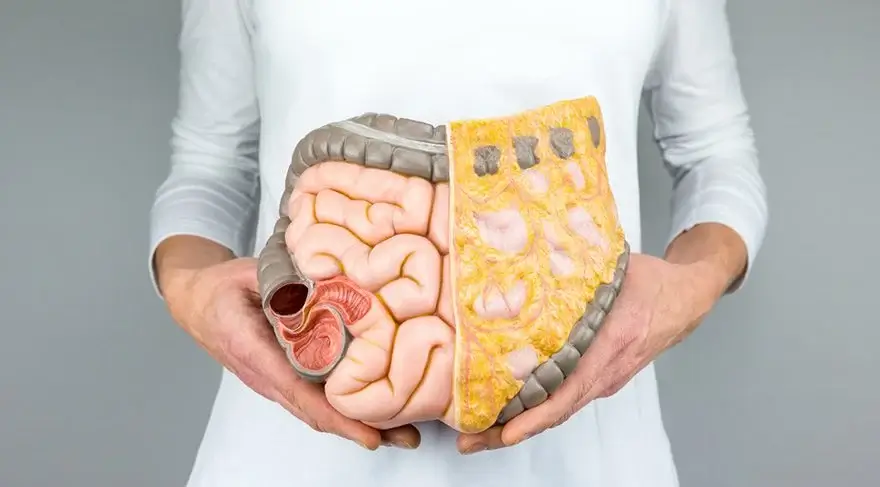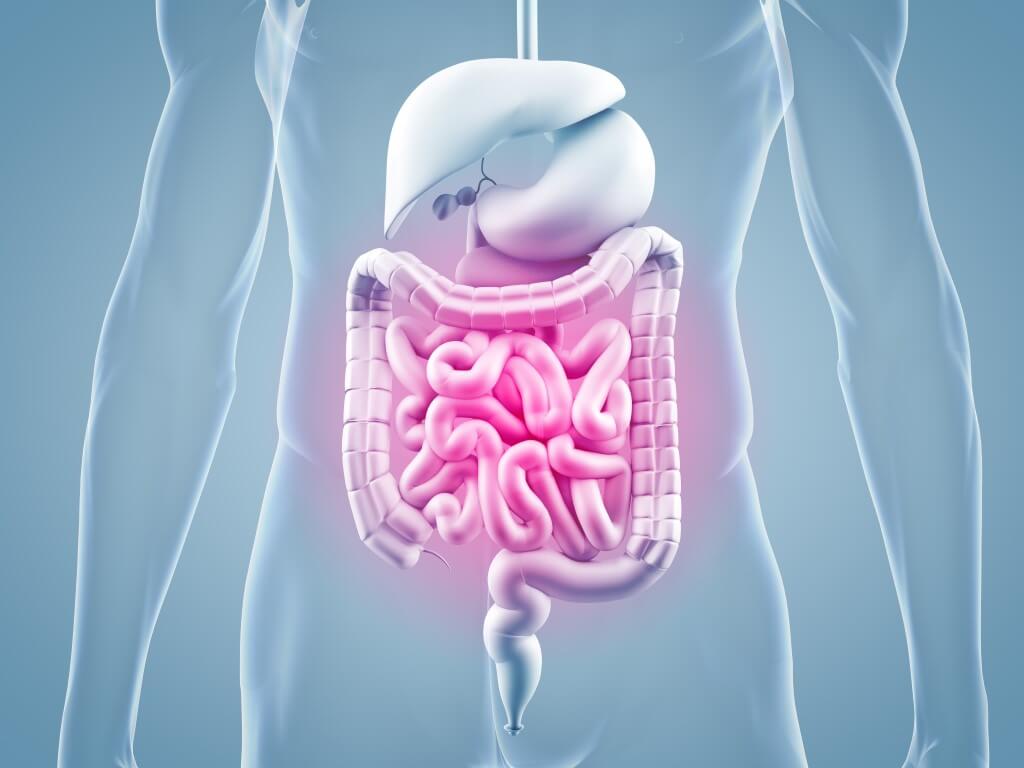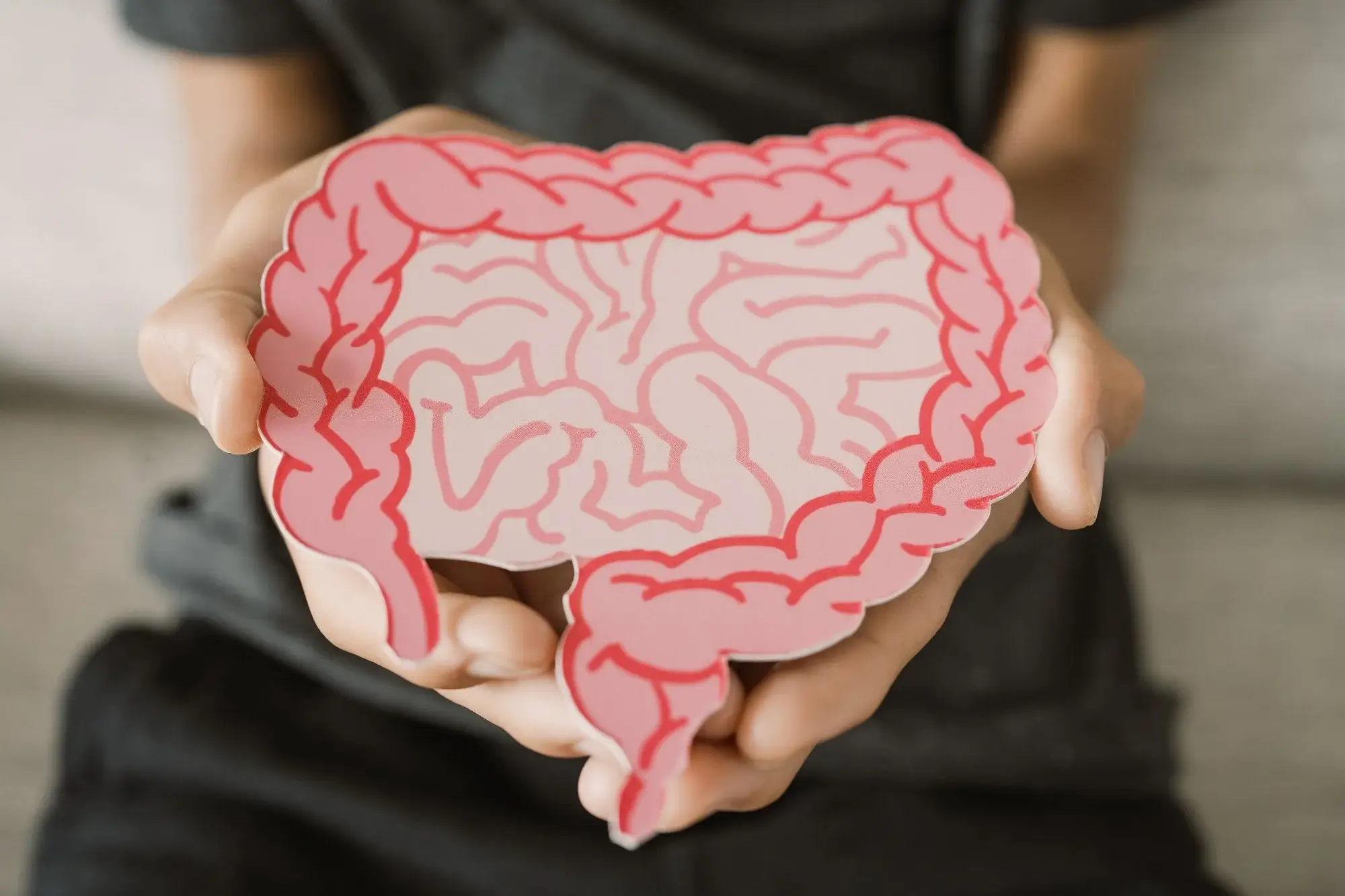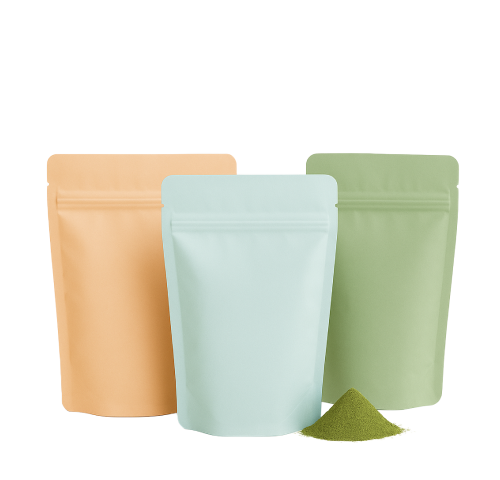What Is a Leaky Gut?

Heal Your Gut, Improve Your Health
Many people suffer from leaky gut, yet few comprehend the problem. It impacts your digestive system and can eventually lead to other health issues. The gut contains a barrier that keeps dangerous substances out of your bloodstream. When such a barrier collapses, it can lead to a number of health issues in your body.
This blog explains leaky gut in detail, how it happens, and why it matters for your health.
- Last Updated: December 3, 2025
- What is Leaky Gut (Intestinal Permeability)? - Overview
- How the Intestinal Barrier Works
- Why It Matters
- The Role of Gut Health in Overall Wellness
- How Leaky Gut Can Affect Other Parts of Your Body
- Leaky Gut Symptoms
- What Diseases Are Linked to Leaky Gut?
- How to Check for Leaky Gut at Home
- What Causes Leaky Gut
- How Long Does It Take to Heal Leaky Gut
- Diet for Leaky Gut
-
-

What is Leaky Gut (Intestinal Permeability)? – Overview
A leaky gut is a condition in which the gut lining becomes more permeable than usual, allowing toxic substances to enter the bloodstream.
- Loosening of the gut wall: This occurs when the tight junctions in your intestinal lining fail to function normally. Substances that normally would not enter the bloodstream can pass through when these junctions loosen.
- Triggered by many causes: Many factors can contribute to gut lining deterioration, including a poor diet, persistent stress, alcohol consumption, and certain medications.
- Harmful elements get in: When the lining is damaged, bacteria, toxins, and undigested food flow out. This may confuse the immune system, resulting in wide symptoms.
- A hidden disruptor: It’s tricky because standard medical tests often do not detect increased intestinal permeability. However, it can affect digestion, energy levels, skin, and even how you feel.
A leaky gut means your body’s primary defence weakens, which can impact your general well-being.
- Loosening of the gut wall: This occurs when the tight junctions in your intestinal lining fail to function normally. Substances that normally would not enter the bloodstream can pass through when these junctions loosen.
-
How the Intestinal Barrier Works
The intestinal barrier isn’t just a simple wall; it’s a busy system that manages what enters your body. It keeps harmful substances out while letting in nutrients.
- Layered and selective: This barrier comprises closely packed cells that form a lining in the small intestine. These cells are connected by tight junctions that can open and close when needed.
- Nutrient in, waste out: The gut allows vitamins, minerals, and nutrients to pass into the bloodstream while blocking out toxins, bacteria, and undigested food.
- Mucus adds defence: A thin mucus layer covers the gut lining to keep harmful particles away. It also contains immune cells that react quickly to any threats.
- Works around the clock: This system constantly protects your body and controls what enters the bloodstream, supporting digestion, immunity, and balance.
A healthy intestinal barrier helps keep your body safe, nourished, and balanced.
- Layered and selective: This barrier comprises closely packed cells that form a lining in the small intestine. These cells are connected by tight junctions that can open and close when needed.
-
Why It Matters
Your gut isn’t just for digesting food; it impacts almost every part of your health. The problems can go beyond your stomach when the gut lining gets damaged.
- Everything starts in the gut: It sends signals to the brain, helps the immune system, and balances hormones. If something’s off with it, other body parts can be affected, too.
- Inflammation can spread quickly: A leaky gut can lead to low-level inflammation that moves through your body. You might notice issues like joint pain, headaches, or skin problems.
- Makes you feel drained: Your body has to work extra hard to deal with stuff that leaks through the gut, eventually leaving you feeling tired and unfocused.
- Long-term problems can increase: If you don’t fix a leaky gut, you might be at a higher risk for chronic health issues like autoimmune diseases, mood swings, or not getting enough nutrients.
Taking care of your gut is key to how your body feels and functions daily.
- Everything starts in the gut: It sends signals to the brain, helps the immune system, and balances hormones. If something’s off with it, other body parts can be affected, too.
-
The Role of Gut Health in Overall Wellness
Your gut does more than just digest food; it plays a role in almost every body system. Taking care of it is important for your health.
- The gut and brain are linked. Your gut sends signals to your brain through nerves and chemicals. If your gut is unhappy, it can affect your mood and focus.
- Immunity starts in the gut: Most of your immune cells are found in the gut lining. Keeping your gut healthy helps you fight off germs and reduces inflammation.
- Nutrient absorption counts: Your gut breaks down food and takes in the good stuff. If it’s not working well, your body might not get the necessary vitamins and minerals.
- Keeps everything balanced: The gut helps regulate hormones and blood sugar, so even minor issues can become bigger when it’s not doing well.
Gut health is more than just part of your wellness; it is the key.
- The gut and brain are linked. Your gut sends signals to your brain through nerves and chemicals. If your gut is unhappy, it can affect your mood and focus.
-
How Leaky Gut Can Affect Other Parts of Your Body
When the gut lining weakens, the problems don’t just stick to your stomach. It can cause issues throughout your body in ways you might not realise.
- Immune system overload: Your body starts seeing leaked particles as threats, leading to constant inflammation. This confusion can lead to bigger health problems.
- Mood and mental health may suffer: A leaky gut can interfere with brain chemicals like serotonin, which might lead to anxiety, low mood, or trouble focusing.
- Skin can show signs of trouble: Issues like acne or rashes may hint at gut problems. When the gut isn’t doing its job, your skin can react.
- Hormones can get out of balance: Gut issues may mess with hormones related to stress, sleep, and metabolism. This can impact your weight, energy levels, and even mood swings.
A leaky gut doesn’t just create issues in the stomach; it sends stress signals throughout the body.
- Immune system overload: Your body starts seeing leaked particles as threats, leading to constant inflammation. This confusion can lead to bigger health problems.
-
Leaky Gut Symptoms
A leaky gut might show up in ways you don’t expect. These symptoms blend into everyday life, making it challenging to spot the real issue, but they all link back to your gut.
- Digestive problems: Bloating, gas, and cramps are common when your gut isn’t handling food well.
- Food sensitivities: You may react to things like dairy or gluten. These reactions usually aren’t too harsh but can lead to discomfort, swelling, or rashes
- Fatigue and brain fog: If your gut isn’t working right, your body may not absorb nutrients properly. This can leave you feeling tired, unfocused, and cloudy-headed.
- Skin shows signs of trouble: Rashes, eczema, or dry patches can indicate something in your gut. When toxins enter the bloodstream, your skin tries to flush them out.
If you notice these symptoms together, your gut could be trying to signal you about an issue.
Less Common Symptoms
Some effects of a leaky gut are easy to miss since they aren’t just about your stomach. These issues can impact your mood, energy, and joints, and people often think they’re caused by something else.
- Frequent mood changes: Feeling anxious or down can be linked to what’s happening in your gut. When the gut and brain connection gets messed up, your mental health can take a hit.
- Sore or tight joints: A leaky gut might cause inflammation, which can lead to stiffness, aches, or swelling in joints over time.
- Ongoing fatigue: Your body spends energy dealing with constant internal stress, which can leave you tired even after you’ve rested.
- Signs that seem random: These symptoms might seem unrelated, but often trace back to a weakened gut barrier.
When your gut starts leaking, it can quietly affect areas you might not expect.
- Digestive problems: Bloating, gas, and cramps are common when your gut isn’t handling food well.
-
What Diseases Are Linked to Leaky Gut?
A leaky gut usually doesn’t happen on its own. It often occurs with other conditions, especially those affecting the digestive system, where the gut lining is important.
- IBS is a common issue: Irritable bowel syndrome can cause bloating, cramping, and irregular bowel movements. A leaky gut might worsen these symptoms.
- IBD shows more serious damage: Inflammatory bowel diseases like Crohn’s and ulcerative colitis involve ongoing inflammation in the gut. A leaky gut might contribute to these conditions.
- Inflammation is key. Many digestive issues can worsen when the gut barrier has problems. A damaged lining can let substances in that cause inflammation.
- The gut is crucial: When the digestive system isn’t working properly, it can allow disease to take hold.
A leaky gut is often found alongside chronic digestive issues.
Autoimmune and Chronic Diseases
The health of your gut is important for your immune system. If the gut lining weakens, it can mess with how the immune system reacts, which could lead to long-term problems.
- Type 1 diabetes: If the gut leaks, harmful substances might enter the bloodstream. This confuses the immune system, causing it to attack the cells that produce insulin.
- Multiple sclerosis risk: A leaky gut can trigger the immune system in ways that might harm your nerves, increasing the chance of developing MS.
- Thyroid issues: Autoimmune thyroiditis often sneaks up on you. Gut problems can let antibodies form and damage the thyroid.
- Early signs can take time: Changes in the gut related to the immune system might appear before any major symptoms show. Catching these signs early can be helpful.
A damaged gut can lead the immune system to make long-term errors.
Other Related Issues
A leaky gut can impact more than just digestion and immunity; it affects various aspects of your life. It may influence your energy levels and mood.
- Allergies and food sensitivities: Large food particles can pass through when you have a leaky gut, triggering allergic reactions or food sensitivities.
- Mood swings can sneak up: Many people with gut issues experience anxiety and depression. When the gut is off, it can also throw your mood out of whack.
- Constant tiredness: Feeling fatigued for no reason? A leaky gut can make your body work harder to cope, leaving you drained.
- Different body parts react: Your skin, joints, and brain can all show symptoms tied to a weak gut.
Leaky gut doesn’t just stay quiet; it affects almost every part of your body over time.
- IBS is a common issue: Irritable bowel syndrome can cause bloating, cramping, and irregular bowel movements. A leaky gut might worsen these symptoms.
-
How to Check for Leaky Gut at Home
There is no straightforward test for a leaky gut. While there are lab options, many people begin by noticing their symptoms and patterns.
- Lab Tests: The lactulose/mannitol test or checking zonulin levels can show if there’s damage, but the results can be unclear.
- Be careful with at-home tests: Many aren’t very accurate, and you might end up with results that don’t make sense or are just plain wrong.
- Keeping track of your symptoms: Jotting down food reactions, skin issues, or digestion can give you good insights. Over time, you may see some patterns.
- Help you spot triggers: You may discover which ones worsen your symptoms by cutting certain foods out.
Stay aware of what’s happening, but consult a professional if the issues don’t improve.
How to Treat Leaky Gut
Leaky gut can improve over time if you take the right steps. These steps aim to help the gut heal, reduce inflammation, and rebuild the gut lining.
- Consider your diet: Cut out foods like gluten, sugar, and dairy that might upset your gut. Instead, include things like bone broth and fermented veggies that can help.
- Be careful with supplements. Nutrients like L-glutamine, vitamin D, and omega-3s can aid in repair. Zinc is also good, as it helps tighten the gut lining and prevent leaks.
- Focus on gut bacteria: Probiotics and prebiotics can help restore healthy microbes in your gut. Keeping this balance is key for protecting against future damage.
- Adjust your daily routine: High stress and poor sleep can harm your gut. Managing these issues gives your body a better chance to heal.
Treating a leaky gut doesn’t happen overnight, but consistent habits can lead to steady improvement.
- Lab Tests: The lactulose/mannitol test or checking zonulin levels can show if there’s damage, but the results can be unclear.
-
What Causes Leaky Gut
A leaky gut occurs when the intestines become damaged over time. This damage can result from diet, lifestyle, and health issues.
- Diet is a big factor: Eating processed foods, drinking alcohol, and having too much sugar can weaken the gut lining. Additives and allergens can make things worse.
- Stress also plays a part: When stressed for a long time, it can slow down digestion and weaken our immune system, leading to gaps in the gut barrier.
- Medications and toxins: Long-term use of NSAIDs or antibiotics, as well as exposure to pesticides, can damage the intestinal lining.
- Other causes: Autoimmune diseases, infections, and imbalances in gut bacteria can make the gut more vulnerable. Our genes can also contribute to the risk.
A leaky gut usually doesn’t have just one cause; often, little things build up over time.
- Diet is a big factor: Eating processed foods, drinking alcohol, and having too much sugar can weaken the gut lining. Additives and allergens can make things worse.
-
How Long Does It Take to Heal Leaky Gut
Healing a leaky gut varies from person to person. Some people notice improvements in a few weeks, while others may need several months of care.
- The severity of the damage matters: If it’s mild, you might feel better in a few months. But if it’s more serious or has been ongoing for a long time, it could take six months or more to see changes.
- Root causes shape recovery: If it’s just one food causing the issue, healing might happen faster than if it’s linked to infections or autoimmune problems. Figuring out what’s causing the gut issues can help speed things up.
- Overall health plays a role: A strong immune system and good nutrition help the gut repair more quickly, while poor health can slow things down.
- Staying consistent is key: Healing requires steady habits like eating well, managing stress, and getting enough sleep. Skipping these can delay progress.
A leaky gut won’t heal overnight, but you can make lasting changes with regular effort.
- The severity of the damage matters: If it’s mild, you might feel better in a few months. But if it’s more serious or has been ongoing for a long time, it could take six months or more to see changes.
-
Diet for Leaky Gut
What you eat matters when it comes to healing your gut. A gut-friendly diet helps support the lining, reduces inflammation, and encourages good bacteria to thrive.
- Fibre is important for gut health: Foods like fruits, veggies, legumes, and whole grains provide prebiotic fibre, which helps smooth digestion and strengthens the gut lining.
- Healthy fats matter, too: Foods such as avocados, olive oil, seeds, and nuts offer anti-inflammatory benefits and help your body absorb important nutrients.
- Fermented foods are great for balance. Yoghurt, kefir, kimchi, and sauerkraut can bring back the good bacteria, which can help repair the gut wall and boost your immune system.
- Bone broth is a great repair aid: It’s packed with collagen and amino acids that support sealing the gut lining. Plus, it’s gentle on your stomach and easy to digest.
Focusing on gut health means picking simple, whole foods that help you heal from the inside.
- Fibre is important for gut health: Foods like fruits, veggies, legumes, and whole grains provide prebiotic fibre, which helps smooth digestion and strengthens the gut lining.
-














